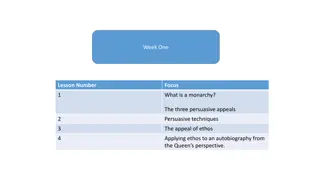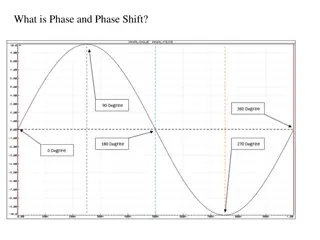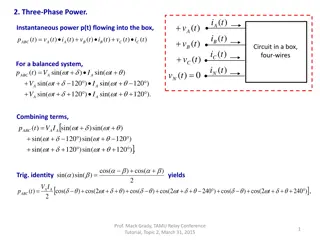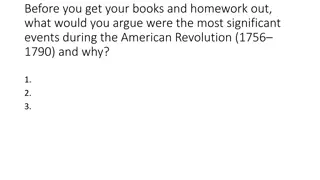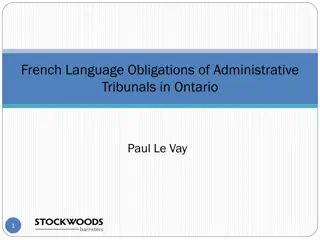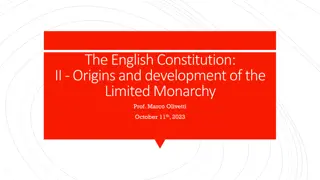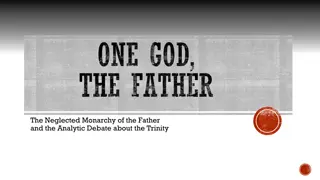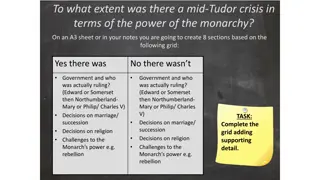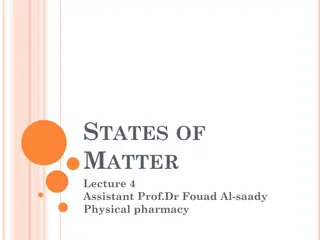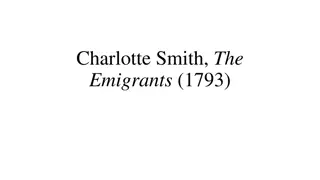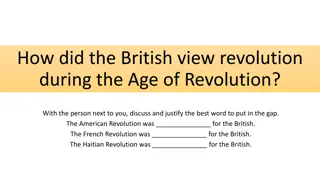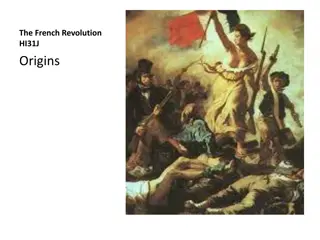The Radical Phase of the French Revolution: Abolishing the Monarchy
The French Revolution entered its Radical Phase in 1793, marked by violent events such as the abolition of the monarchy, execution of King Louis XVI, establishment of the French Republic, and the subsequent Reign of Terror. Tensions rose as war broke out with various countries, leading to internal conflicts and widespread bloodshed. The revolutionaries, particularly the Jacobins, aimed to dismantle the old order and establish a new regime based on revolutionary principles.
Download Presentation

Please find below an Image/Link to download the presentation.
The content on the website is provided AS IS for your information and personal use only. It may not be sold, licensed, or shared on other websites without obtaining consent from the author. Download presentation by click this link. If you encounter any issues during the download, it is possible that the publisher has removed the file from their server.
E N D
Presentation Transcript
The French Revolution and Napoleon The Radical Revolution
Abolishing the Monarchy 1793 is recognized as one of the bloodiest years in France s history 1793 the French Revolution entered its Radical Phase which saw nearly 40,000 people executed or murdered
Abolishing the Monarchy Dismal news about the war abroad heightened tensions Prussian forces destroying amateur French troops Royalist officers in the French army leaving France to restore the king s power from the outside Many revolutionaries thought the king was in league with Austria and Prussia to overthrow the revolution
Abolishing the Monarchy August 10, 1792 angry Parisian mob stormed the palace and killed the king s guards Royal family escaped death by escaping to the Legislative Assembly September Massacres Mob attacked a prison holding nobles and priests accused of political offenses About 1,200 prisoners killed including ordinary criminals
Abolishing the Monarchy Backed by Paris crowds, radicals took over the Assembly and called for a new legislative body called the National Convention Suffrage extended to all male citizens The Convention met in September 1792, voted to abolish the monarchy and establish the French Republic
Abolishing the Monarchy The radical Jacobins who controlled the Convention set out to erase all traces of the old order Started in early 1793 by putting the king on trial as a traitor to France Convicted by a single vote and sentenced to death by guillotine in January 1793/Marie Antoinette also executed in October 1793
The Terror of Revolution By early 1793, France was at war with Britain, Netherlands, Spain, and Prussia The National Convention bitterly divided between the Jacobins and the Girondins Royalists and priests led peasants in rebellion against the government
The Terror of Revolution To deal with threats to France, the Convention created the 12-member Committee of Public Safety Had almost absolute power in its role to save the revolution Raised taxes to help pay for war and in charge of trials and executions
The Terror of Revolution French recruits marched off to defend the revolution against outside threats They overran the Netherlands and Italy and crushed revolts at home European monarchs feared revolutionaries carrying freedom fever into conquered lands
Maximilien Robespierre Shrewd lawyer and politician Rose to become the leader of the Committee of Public Safety Became known as the incorruptible due to his dedication to the revolution, his enemies called him a tyrant
Maximilien Robespierre Believed in Rousseau s idea of the general will being the source of law Promoted religious tolerance and the end of slavery Popular with the sans-culottes due to his hatred of the old regime Believed a republic of virtue could only be achieved through terror- prompt, severe, inflexible justice
The Reign of Terror Robespierre one of the chief architects of the Reign of Terror (September 1793-July 1794) Revolutionary courts conducted hasty trial and sentenced many to death Those on trial accused of resisting the revolution 300,000 arrested and around 17,000 executed
Reign of Terror Guillotine seen as the symbol of the Reign of Terror Introduced as a more humane way to execute criminals Many victims of mistaken identity or falsely accused by neighbors Eventually, members of the Convention turned on members of the Committee of Public Safety July 28, 1794 Robespierre executed, afterward executions slowed dramatically
Third Stage of Revolution In reaction to the Terror, moderates in the Convention produced the Constitution of 1795 Set up a five-man directory and two-house legislature elected by male citizens of property Middle class and professional people were driving force of this stage of the revolution Although dictatorial, the Directory was weak and faced great discontent
Third Stage of Revolution Peace was made with Prussia and Spain, but war continued with Austria and Britain Leaders lined pockets, but failed to solve problems Revival of royalist feeling became a threat to the Directory as emigres began coming back to France
Third Stage of Revolution As chaos threatened, politicians began turning toward Napoleon Bonaparte Popular war hero Won victories against Austria in Italy Politicians planned to use Bonaparte to advance their own goals, but he outwits them to become ruler of France
Revolution Brings Change Revolution dramatically changed France Dislodged old social order Overthrew the monarchy Brought the Church under state control Revolution and war gave people a strong since of national identity In the past loyalty was to local authorities or the king, now it was to the nation itself
Revolution Brings Change Revolution gave rise to Nationalism (strong feeling of pride in and devotion to one s country) During this time period, songs and other forms of art celebrated the nation La Marseillaise- a patriotic song of the revolutionary period that would later become the French national anthem
Revolutionaries Push for Reform Revolutionaries pushed for social reform and religious toleration Set up state schools to replace church schools Organized systems to help poor, old soldiers, war widows Abolished slavery in Caribbean colonies





